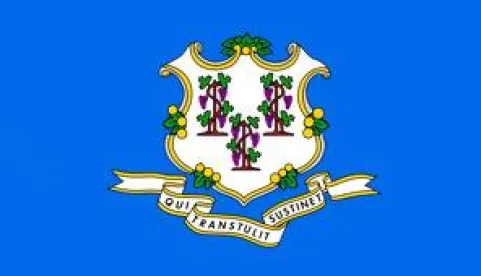The Connecticut Workers Compensation Act (Act) provides wage replacement and medical benefits for employees who suffer a work-related injury or illness, including certain occupational diseases (defined in the Act to mean “any disease peculiar to the occupation in which the employee was engaged and due to causes in excess of the ordinary hazards of employment”). Proving an occupational disease arose out of employment can be difficult to do for highly contagious, long-incubation, community-spread diseases like COVID-19.
On July 24, 2020, Governor Ned Lamont made it much easier for certain employees to claim workers’ compensation benefits as a result of contracting COVID-19. Executive Order No. 7JJJ (Order) creates a rebuttable presumption that employees who missed a day or more of work between March 10, 2020 and May 20, 2020 due to a COVID-19 diagnosis or symptoms later diagnosed as COVID-19 can receive workers’ compensation benefits.
The rebuttable presumption arises when four criteria are met:
- At the direction of his or her employer, the employee worked outside of the home during at least one of the 14 days immediately preceding the date of injury and did not receive an offer or directive from his or her employer to work from home;
- If the date of the injury was more than 14 days after March 23, 2020, the employee worked for an “essential” employer as defined by the Connecticut Department of Economic and Community Development;
- COVID-19 was confirmed by a positive test result or diagnosed and documented by a doctor within three weeks of the date of injury; and
- The positive test result or written diagnosis is presented to the employer or insurer.
Under the Order, the “date of injury” means the date the employee was first unable to work (or died) between March 10 and May 20, 2020. Under the Order, an employee need not show any work-related connection to the COVID-19 diagnosis, other than proof of contracting the disease during the relevant time. Once these elements are shown, an employer or insurer may rebut the presumption by demonstrating by a preponderance of evidence that the employee’s employment was not the cause of the employee contracting COVID-19.
The Order provides an offset to wage replacement benefits for any emergency paid sick leave granted under the Families First Coronavirus Response Act (FFCRA) or any other paid sick leave program available in response to COVID-19. Other accrued paid leave, however, does not offset the employee’s recovery.
The Order also creates a cause of action if an employer “deliberately misinforms or otherwise deliberately dissuades an employee from filing a claim for workers’ compensation benefits.”
The Order raises several takeaways for employers. First, employers that required any employee to work outside of home between March 10, 2020 and May 20, 2020 may wish to consider possible COVID-19 workers’ compensation claims from their employees and consult with their workers’ compensation carriers about evidence preservation and other proactive steps. Second, employers that provided paid FFCRA sick leave may be able offset an employee’s workers’ compensation payments by the amount the employee received in such paid sick leave payments. Lastly, employers may wish to keep in mind the new retaliation protections in the Order and plan accordingly.
While the information contained in this material provides a general overview of the law, each employer will likely face unique business and employment-related challenges and issues as they relate to these changes. Therefore, to ensure compliance with the law, employers are encouraged to seek competent legal counsel when responding to employee inquiries or considering changes to business operations as a result of the coronavirus.




 />i
/>i
